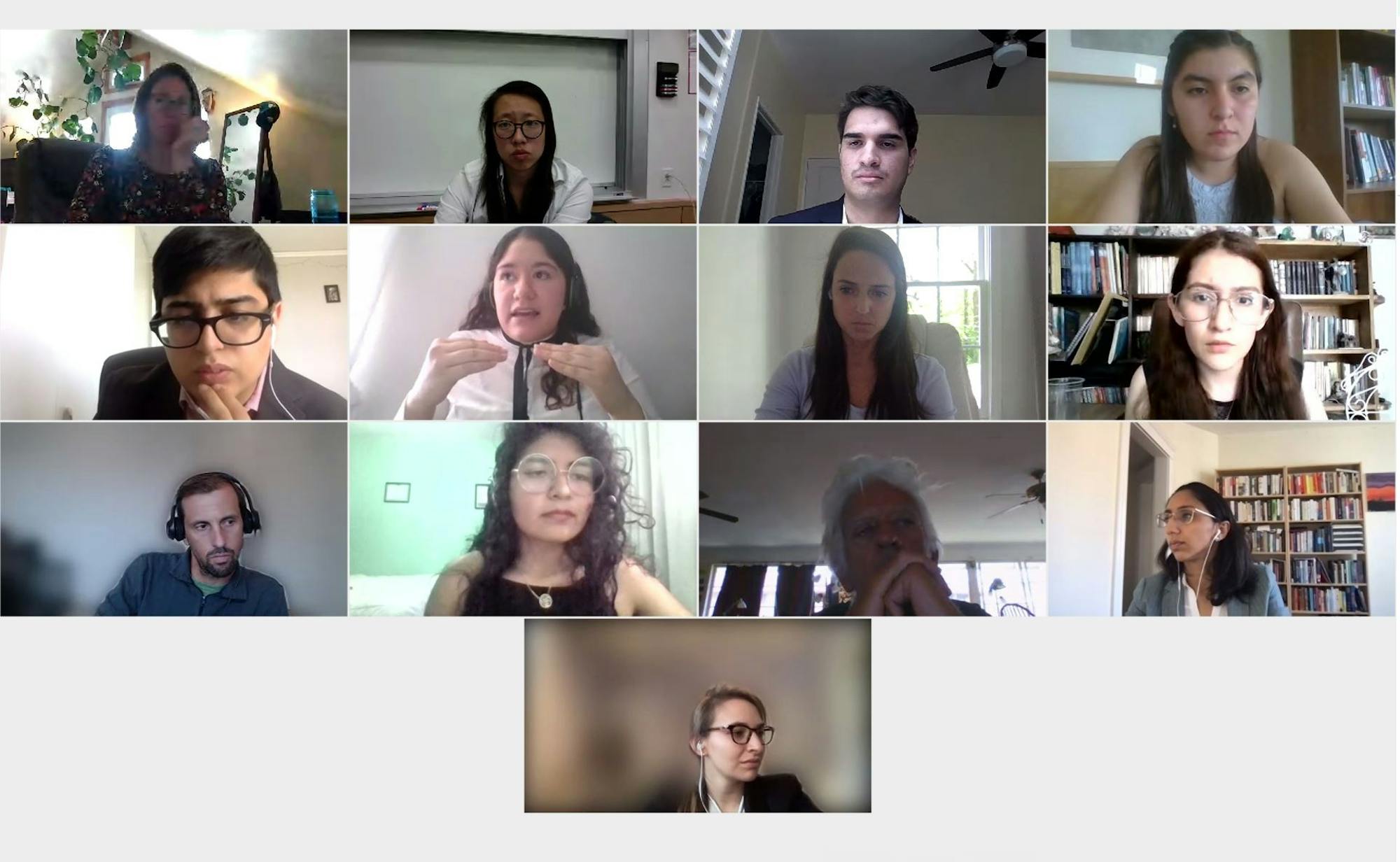On April 29, Dartmouth students collaborated with university students from Mexico on a project that won the “Moonshot Award” — a prize awarded for a “large-scale idea with a grand vision” — at the annual Marine Energy Collegiate Competition, a contest sponsored by the U.S. Department of Energy.
The MECC works to bring undergraduate and graduate teams together to sustain coastal communities and utilize energy from the sea, according to the Office of Energy Efficiency and Renewable Energy. The competition, which took place in April, challenged participants to create both a business plan and a marine energy device that powers the “blue economy,” a term that refers to the sustainable development of coastal resources.
According to the Department of Energy’s website, teams were tasked with designing a device that “optimizes technology, reduces costs and explores new opportunities for marine energy.” Participants completed both a business proposal and a detailed technology design proposal.
While a Purdue University team was selected as winner of the 2021 MECC, the multi-institution team that included Dartmouth students took home the “Moonshot Award.” The prize was given alongside overall awards and several individual categories, such as the “Community Outreach and Engagement Award.”
The 11-person team included students from the Autonomous University of Baja California, the Autonomous University of Mexico State, Dartmouth, the National Autonomous University of Mexico and the University of Caribe.
Emily Martinez ’21, a member of the team, said the Moonshot Award was given to the team for bringing together a group from six different institutions — five of them international — to devise an "ambitious" project. Other Dartmouth team members included Michelle Wang ’21, Santiago Zamora Castillo ’21 and Andrés Rosales ’20 Th ’21.
According to Martinez, for its project the team worked on a design proposal for a 60-megawatt ocean thermal energy conversion power plant, a facility that would produce electricity by pumping warm surface water through an evaporator, which drives a turbine. The resulting vaporized fluid, Martinez said, would then be cooled with water from deeper ocean layers, producing condensed water, a byproduct of the process that can be used to desalinate water for human consumption and "aquaculture" — the farming of aquatic animals and plants. Martinez said the plant’s aquaculture systems are designed to produce marketable macroalgae — for human consumption and biofuel use — that offset the capital costs of the plant. She added that the plant would be located off the coast of Cozumel, Mexico, where previous studies have shown ocean thermal energy conversion to work optimally.
Jessica Guadalupe Tobal Cupul, a member of the team who attended the Universidad del Caribe in Mexico, said the project is particularly important as climate change threatens the energy independence of island and coastal communities.
“It is really important for coastal communities’ resilience, to self-produce their energy and their products,'' Topal Cupul said.
Wang added that in light of climate change, the project becomes more relevant as many countries across the world seek to transition from traditional fossil fuel sources.
“It is salient now, in the context of climate change — we need to promote more sustainable, low-carbon technologies,” Wang said. “It is a free source of energy to be utilized, specifically for island communities — it is a multi-infrastructural asset.”
Daniela Navarro, another team member and a student at the National Autonomous University of Mexico, added that the plant provides baseload power, which means the plant operates constantly to meet a minimum power demand.
“Ocean thermal energy conversion technology provides [baseload] power, so it is a more reliable source of renewable energy; it doesn’t waver as much as other sources of energy,” Navarro said.
Martinez said the competition process included submitting a proposal, creating a poster explaining their project after its submission, writing a 20-page report and presenting to the MECC judges. She added that the multinational aspect of the team created unique communication barriers.
“We are a bilingual team — half of our team didn’t speak much English, and another part of our team didn’t speak Spanish,” Martinez said. “It was a little bit of trouble just assembling the team, but it ended up working out.” Martinez added that she worked to bring the teams from Mexico and Dartmouth together, often serving as a translator.
Wang, who does not speak Spanish, said the language barrier was a “challenging” hurdle in the project development process. However, she said the experience proved what can be produced in a remote work environment, particularly when combining talent from across borders.
Martinez, who connected with the Mexican team through a mutual advisor at the Mexican Center for Innovation in Marine Energy, said the group members from Mexico offered a particularly deep understanding of ocean-based renewable energy technology.
“Our team from Mexico are very experienced in ocean thermal energy conversion technology,” Martinez said. “So that’s where the idea surfaced.”
Martinez said each team received roughly $15,000 from the MECC to develop the project. This summer, the group plans to publish a report on their project, specifically the coupling of ocean thermal energy plants and aquaculture systems, Martinez said.





